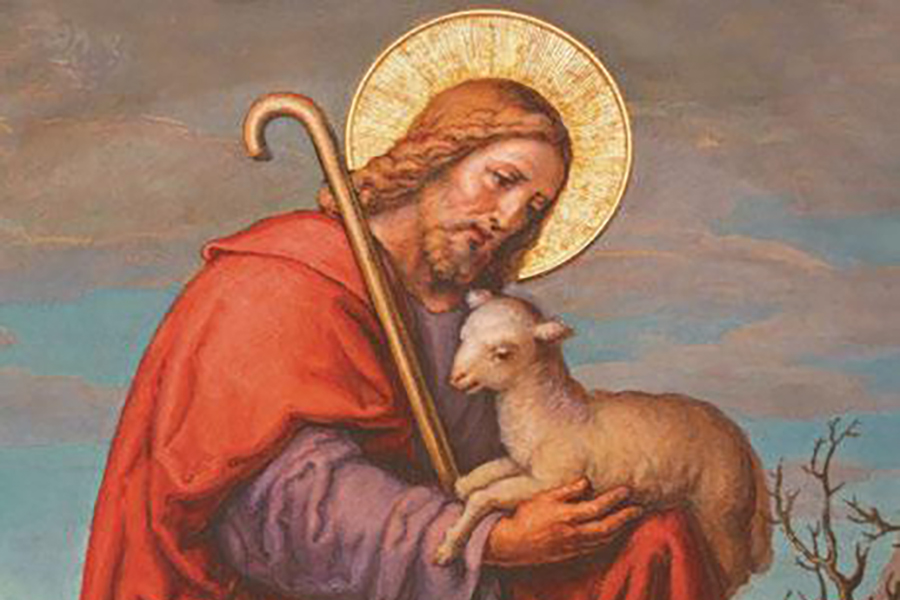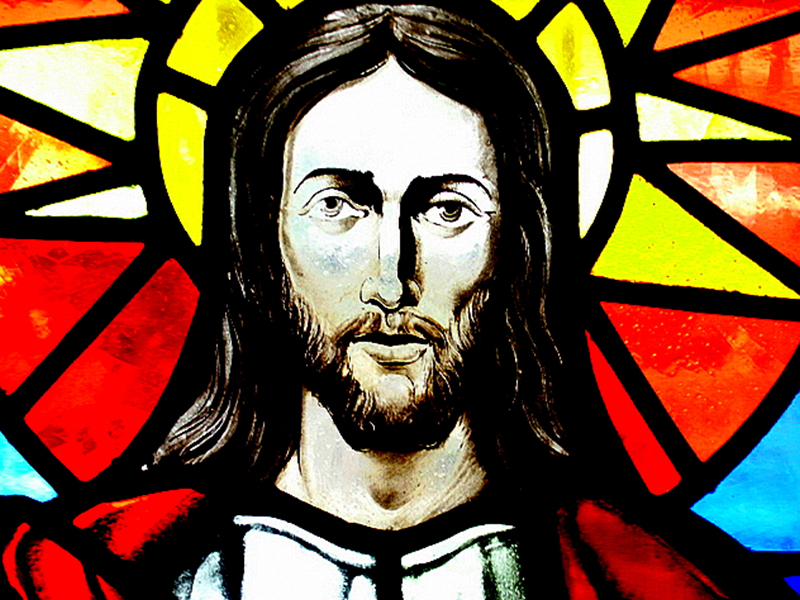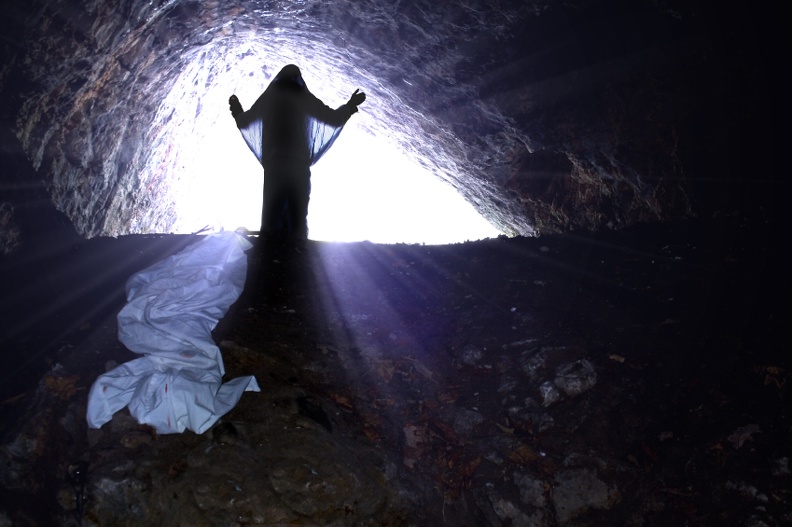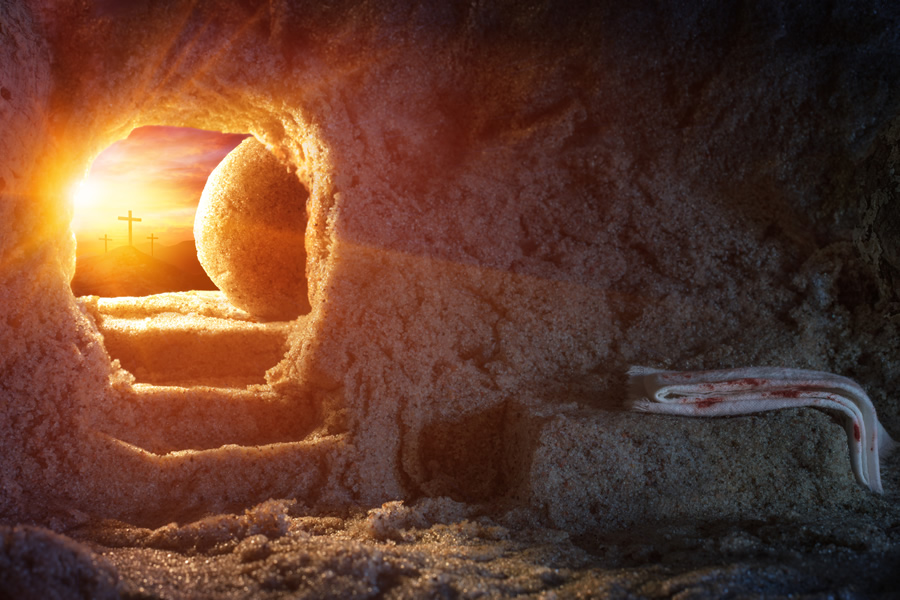St. Francis of Assisi Weekly Reflections

I Have Come That You May Have Life
04-30-2023Weekly ReflectionWe Celebrate Worship Resource, Vol. 48, No. 2Peter echoes the words of John the Baptist when he calls the people of Jerusalem to repentance and baptism, becoming a kind of messenger for the Risen Lord, as John was for the earthly Jesus. The forgiveness of both personal and original sin that follows repentance and baptism, in a way, the gate through which our Good Shepherd Jesus calls us. The Good Shepherd cares for his sheep, guarding them from harm, rescuing them when they are lost, guiding them back to the fold, feeding and nurturing them as long as they live. Of all people, Peter knows this, since he denied Jesus three times and abandoned him just hours before he was put to death. But after his Resurrection, Jesus not only forgives Peter, he commands him to “Feed my sheep,” trusting him to shepherd his people (John 21:17). In Jesus’ fold, where all are forgiven for the wrongs we have done, we “have life and have it more abundantly” (John 10:10).
What are you called to repent today? Will you seek the forgiveness that admits you into the Good Shepherd’s fold?
Yo He Venido Para Que Tengan Vida
Pedro se hace eco de las palabras de Juan Bautista cuando llama al pueblo de Jerusalén al arrepentimiento y al bautismo, convirtiéndose en una especie de mensajero del Resucitado, como lo fue Juan del Jesús terrenal. El perdón de los pecados personales y originales que sigue al arrepentimiento y al bautismo, en cierto modo, la puerta por la que nos llama nuestro Buen Pastor Jesús. El Buen Pastor cuida de sus ovejas, protegiéndolas de cualquier daño, rescatándolas cuando se pierden, guiándolas de vuelta al redil, alimentándolas y cuidándolas mientras vivan. De todas las personas, Pedro lo sabe, ya que negó a Jesús tres veces y lo abandonó solo unas horas antes de que lo ejecutaran. Pero después de su Resurrección, Jesús no solo perdona a Pedro, sino que le ordena “Apacienta mis ovejas”, confiando en él para pastorear a su pueblo (Juan 21:17). En el redil de Jesús, donde todos son perdonados por los errores que hemos hecho, “tenemos vida y la tenemos en abundancia” (Juan 10:10).
¿De qué estás llamado a arrepentirte hoy? ¿Buscarás el perdón que te admita en el redil del Buen Pastor?
Called to be Shepherds
04-30-2023Question of the WeekReading I: Acts 2:14, 36-41 - Peter’s discourse
Reading II: 1 Peter 2:20b-25 - For the slave
Gospel: John 10:1-10 - The Good Shepherd
Key Passage: The shepherd goes ahead of them, and the sheep follow him because they know his voice. (John 10:4)
Adults: How are you a shepherd to those in your care?
Kids: What will you do this week to show you love those around you?
Llamados A Ser Pastores
Lectura I: Hechos 2:14, 36-41 - Discurso de Pedro
Lectura II: 1 Pedro 2:20b-25 - Para el esclavo
Evangelio: Juan 10:1-10 - El Buen Pastor
Pasaje Clave: El pastor va delante de ellos, y las ovejas lo siguen porque conocen su voz. (Juan 10:4)
Adultos: ¿Cómo eres un pastor para los que están a tu cuidado?
Niños: ¿Qué harás esta semana para demostrar que amas a los que te rodean?

Encountering Jesus with Eyes of Faith
04-23-2023Weekly ReflectionWe Celebrate Worship Resource, Vol. 48, No. 2The pair of disciples from Emmaus were confused and disturbed. Jesus had been killed, dashing their hopes of Israel’s redemption. His tomb had been broken into and his body was missing. Angels had told some of the disciples that he was alive, but as far as these two knew, no one had seen him. So now they were leaving Jerusalem, discussing and debating what it all meant. Though downcast and uncertain, they welcomed the stranger as they made their way back home. Before long, the stranger was interpreting God’s word anew, leading them to think differently about the Messiah. Only later did they realize that he had reignited the passion in their hearts as he spoke. Not until they broke bread together were their eyes opened. They recognized the Risen Lord in that distinctive ritual. Each time we gather for Mass, we have the opportunity to encounter the Risen Lord in Word and Eucharist. May our eyes of faith see Jesus manifest to us as we encounter him in the word, in the breaking bread, and in all the unexpected places he meets us. May our hearts burn within us.
How can you recognize Jesus with eyes of faith?
Encontrando A Jesús Con Ojos De Fe
El par de discípulos de Emaús estaban confundidos y perturbados. Jesús había sido asesinado, acabando con sus esperanzas de la redención de Israel. Su tumba había sido forzada y su cuerpo había desaparecido. Los ángeles les habían dicho a algunos de los discípulos que estaba vivo, pero hasta donde estos dos sabían, nadie lo había visto. Así que ahora estaban saliendo de Jerusalén, discutiendo y debatiendo lo que significaba todo eso. Aunque abatidos e inseguros, dieron la bienvenida al extraño mientras regresaban a casa. En poco tiempo, el extraño estaba interpretando la palabra de Dios de nuevo, llevándolos a pensar de manera diferente sobre el Mesías. Solo más tarde se dieron cuenta de que había reavivado la pasión en sus corazones mientras hablaba. Hasta que partieron el pan juntos no se les abrieron los ojos. Reconocieron al Señor Resucitado en ese ritual distintivo. Cada vez que nos reunimos para Misa, tenemos la oportunidad de encontrarnos con el Señor Resucitado en la Palabra y la Eucaristía. Que nuestros ojos de fe vean a Jesús manifestándose a nosotros cuando lo encontramos en la palabra, en la fracción del pan, y en todos los lugares inesperados en los que se encuentra con nosotros. Que nuestros corazones ardan dentro de nosotros.
¿Cómo puedes reconocer a Jesús con los ojos de fe?
Recognizing the Lord
04-23-2023Question of the WeekReading I: Acts 2:14, 22-33 - Peter’s discourse
Reading II: 1 Peter 1:17-21 - Filial obedience
Gospel: Luke 24:13-35 - Emmaus
Key Passage: While he was at he table, he took bread, said the blessing, broke it, and gave it to them. With that their eyes were opened and they recognized him, but he vanished from their sight. (Luke 24:30)
Adults: In what way have you come to know Jesus better through the breaking of the bread at Eucharist?
Kids: When you join Jesus at the table of the Eucharist next Sunday, what would you like to thank him for?
Reconciendo Al Señor
Lectura I: Hechos 2:14, 22-33 - Discurso de Pedro
Lectura II: 1 Pedro 1:17-21 - Obediencia filial
Evangelio: Lucas 24:13-35 - Emaús
Pasaje Clave: Cuando estaban en la mesa, tomó un pan, pronunció le bendición, lo partió y se lo dio. Entonces se les abrieron los ojos y lo reconocieron, pero él se les desapareció. (Lucas 24:30)
Adultos: ¿De qué manera has llegado a conocer mejor a Jesús a través de la fracción del pan en la Eucaristía?
Niños: Cuando te unas a Jesús en la mesa de la Eucaristía el próximo domingo, ¿qué te gustaría agradecerle?

Let Us Rejoice In Him
04-16-2023Weekly ReflectionWe Celebrate Worship Resource, Vol. 48, No. 1Do you “rejoice with an indescribable and glorious joy” (1 Peter 1:8) as you attend Mass today? Unless something incredibly wonderful has just happened to you, probably not. But only a week ago we celebrated Easter, commemorating an event that is joyful and glorious beyond measure. Consider that even forty or fifty years after the Resurrection—when today’s readings were written—Peter wrote hat the Christian community still lived in the ineffable joy named above, despite the continual persecution suffered by the church at the time. Peter acknowledges this is in his letter, warning that they “may have to suffer through various trials” (1:6). We can relate. The ongoing hardships and tragedies in our lives and in the world may threaten to overwhelm the joy of the Resurrection. But our risen Lord continues to break into our lives, through locked doors and unbelieving resistance, assuring us of his victory over the powers of sin and death. Let us always rejoice in his saving presence and promise of eternal life as we, like the members of the early church, gather to break bread together.
What in your life makes it difficult to hold onto Easter joy?
How can your keep the Easter event central in your life?
Regocijémonos Siempre En Él
¿Te “gozas con un gozo indescriptible y glorioso” (1 Pedro 1:8) al asistir a Misa hoy? A menos que te haya pasado algo increíblemente maravilloso, probablemente no. Pero hace solo una semana celebramos la Pascua, conmemorando un evento que es gozoso y glorioso sin medida. Considere que incluso cuarenta o cincuenta años después de la Resurrección, cuando se escribieron las lecturas de hoy, Pedro escribió que la comunidad cristiana todavía vivía en el gozo inefable antes mencionado, a pesar de la continua persecución que sufría la iglesia en ese momento. Pedro reconoce esto en su carta, advirtiendo que “tal vez tengan que sufrir diversas pruebas” (1:6). Podemos relacionarnos. Las dificultades y tragedias en curso en nuestras vidas y en el mundo pueden amenazar con abrumar el gozo de la Resurrección. Pero nuestro Señor resucitado continúa irrumpiendo en nuestras vidas, a través de puertas cerradas y resistencia incrédula, asegurándonos su victoria sobre los poderes del pecado y la muerte. Regocijémonos siempre en su presencia salvadora y su promesa de vida eterna mientras nosotros, como los miembros de la iglesia primitiva, nos reunimos para partir el pan juntos.
¿Qué en tu vida te dificulta aferrarte a la alegría de la Pascua?
¿Cómo puedes mantener el evento de Pascua en el centro de tu vida?
Encouraging Others
04-16-2023Question of the WeekReading I: Acts 2:42-47 - Communal life
Reading II: 1 Peter 1:3-9 - Thanksgiving
Gospel: John 20:19-31 - Appearance to the disciples; Thomas
Key Passage: Then Jesus said to Thomas, “Put your finger here and see my hands. Reach out your hand and put it in my side. Do not doubt but believe.” (John 20:27)
Adults: We show our faith when we demonstrate courage in the face of difficulty. What could you do this week to help strengthen someone?
Kids: What could you do this week to encourage someone who is sad or discouraged?
Amimando A Otros
Lectura I: Hechos 2:42-47 - Vida comunitaria
Lectura II: 1 Pedro 1:3-9 - Acción de gracias
Evangelio: Juan 20:19-31 - Aparición a los discípulos; Tomás
Pasaje Clave: Entonces Jesús le dijo a Tomás: “Aquí están mis manos; acerca tu dedo. Trae acá tu mano, métela en mi costado y no sigas dudando, sino cree.” (Juan 20:27)
Adultos: Mostramos nuestra fe cuando demostramos coraje frente a la dificultad. ¿Qué podrías hacer esta semana para ayudar a fortalecer a alguien?
Niños: ¿Qué podrías hacer esta semana para animar a alguien que está triste o desanimado?

How has Christ’s Resurrection Transformed you?
04-09-2023Weekly ReflectionWe Celebrate Worship Resource, Vol. 48, No. 1On this glorious day, let us imagine what the first Easter morning was like for Jesus’ own disciples. According to John, Mary Magdalene comes to the tomb first, which is unsurprising since she is one of the few people who stayed with Jesus to the end. She is shaken and confused to see the open tomb. Simon Peter had abandoned Jesus before he was crucified, going so far as denying him, so he is eager to try to find Jesus’ body—anything to make up for his actions two days earlier. The disciple whom Jesus loved had been entrusted to care for the Blessed Mother, so he wants to safeguard her from upsetting news. We too each come to the Resurrection with our own concerns: our sorrows, our sins, our preoccupations. But everything we bring with us today is utterly transformed by the Resurrection. Our sorrows find meaning, our sins receive forgiveness, our preoccupations are banished to the shadows by our redemption. Just as the Resurrection transformed the lives of his disciples, so too does it transform our lives, today and every day. Alleluia!
How does the Resurrection transform your attitude, your perspective, and your day-to-day life?
¿Como Te Ha Transformado La Resurrection De Cristo?
En este glorioso día, imaginemos cómo fue la primera mañana de Pascua para los propios discípulos de Jesús. Según Juan, María Magdalena llega primero a la tumba, lo cual no nos sorprende ya que ella es una de las pocas personas que se quedó con Jesús hasta el final. Ella se estremeció y se confundió al ver la tumba abierta. Simón Pedro había abandonado a Jesús antes de que fuera crucificado, llegando incluso a negarlo, por lo que estaba ansioso por tratar de encontrar el cuerpo de Jesús, cualquier cosa para compensar sus acciones dos días antes. Al discípulo a quien Jesús amaba se le había encomendado el cuidado de la Santísima Madre, por lo que quería protegerla de noticias desagradables. También nosotros venimos a la Resurrección con nuestras propias preocupaciones: nuestros dolores, nuestros pecados, nuestras preocupaciones. Pero todo lo que traemos hoy con nosotros es completamente transformado por la Resurrección. Nuestros dolores encuentran sentido, nuestros pecados reciben perdón, nuestras preocupaciones son desterradas a las sombras por nuestra redención. Así como la Resurrección transformó la vida de sus discípulos, también transforma la nuestra, hoy y todos los días. ¡Aleluya!
¿Cómo transforma la Resurrección tu actitud, tu perspectiva y tu vida cotidiana?
Witness to Faith
04-09-2023Question of the WeekReading I: Acts 10:34a, 37-43 - Peter’s discourse
Reading II: Colossians 3:1-4 - Mystical death and resurrection
Gospel: John 20:1-9 - Peter and the disciple at the tomb
Key Passage Then the other disciple, who reached the tomb first, also went in, and he saw and believed. (John 20:8)
Adults: What is your experience of resurrection in your own life or the life of your family?
Kids: Jesus is with us today. How can you see him in the people around you in Church?
Testigo De La Fe
Lectura I: Hechos 10:34a, 37-43 - Discurso de Pedro
Lectura II: Colosenses 3:1-4 - Muerte mística y resurrección
Evangelio: Juan 20:1-9 - Pedro y el discípulo en la tumba
Pasaje Clave Entonces entró también el otro discípulo, el que había llegado primero al sepulcro, y vio y creyó. (Juan 20:8)
Adultos: ¿Cuál es tu experiencia de resurrección en tu propia vida o en la vida de tu familia?
Niños: Jesús está con nosotros hoy. ¿Cómo puedes verlo en las personas que te rodean en la Iglesia?
Obedience and Humility
04-02-2023Question of the WeekReading I: Matthew 21:1-11 - Triumphal entry into Jerusalem
Reading II: Isaiah 50:4-7 - Salvation only through the Lord’s servant
Gospel: Luke 22:14-23-23:56 - The Passion of Jesus
Key Passage: Jesus emptied himself, taking the form of a slave, being born in human likeness. And being found in human form, he humbled himself and became obedient to the point of death—even death on a cross. (Philippians 2:7–8)
Adults: We are called to die to ourselves in love for others. How do you live that in your own life?
Kids: How do you allow Jesus to live in your heart?
Obediencia Y Humildad
Lectura I: Mateo 21:1-11 - Entrada triunfal en Jerusalén
Lectura II: Isaías 50:4-7 - Salvación sólo a través del siervo del Señor
Evangelio: Lucas 22:14-23-23:56 - La Pasión de Jesús
Pasaje Clave: Jesús se despojó a sí mismo, tomando forma de siervo, hecho semejante a los hombres; y estando en la condición de hombre, se humilló a sí mismo, haciéndose obediente hasta la muerte, y muerte de cruz . (Filipenses 2:7–8)
Adultos: ¿Estamos llamados a morir a nosotros mismos en el amor por los demás. ¿Cómo vives eso en tu propia vida?
Niños: ¿Cómo permites que Jesús viva en tu corazón?